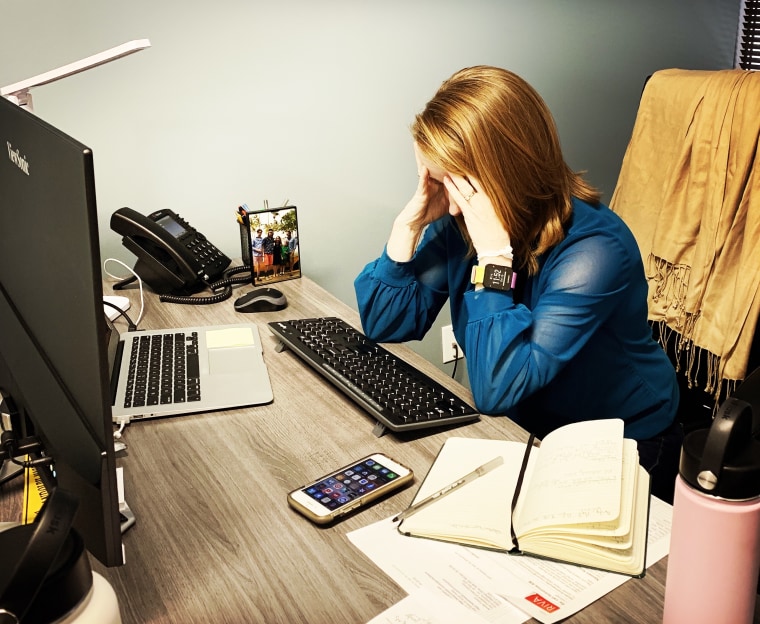It’s been a rough few months, even by 2022 pandemic standards.
In November, my mother – who was my father’s full-time caregiver – had a stroke. In December, both of my 19-year-old sons decided that college wasn’t for them and moved back home, with no alternate plans in place. My 14 year old is currently struggling to find his academic motivation and social footing after two years of Covid-19.
So, for the last four months, I’ve spent time taking care of my parents who a two-and-a-half hour drive away, while fielding daily calls and figuring out logistics for my kids back home. And when I’m at my home, I’m fielding calls from my parents (who are in cognitive decline). Oh, and I continue to work full-time, often from hospital parking garages.
I’m happy that I can be there for my family. But the daily juggle of being a sandwich-generation caregiver has left me exhausted, and also seeking some bigger truths. If I go right from caring for my children to caring for my parents, when do I get to focus on me? When do I get to really dive into the meaty years of my career? Or, I don’t know, do things I want to do when I want to do them, like travel or (gasp!) pick up a hobby?
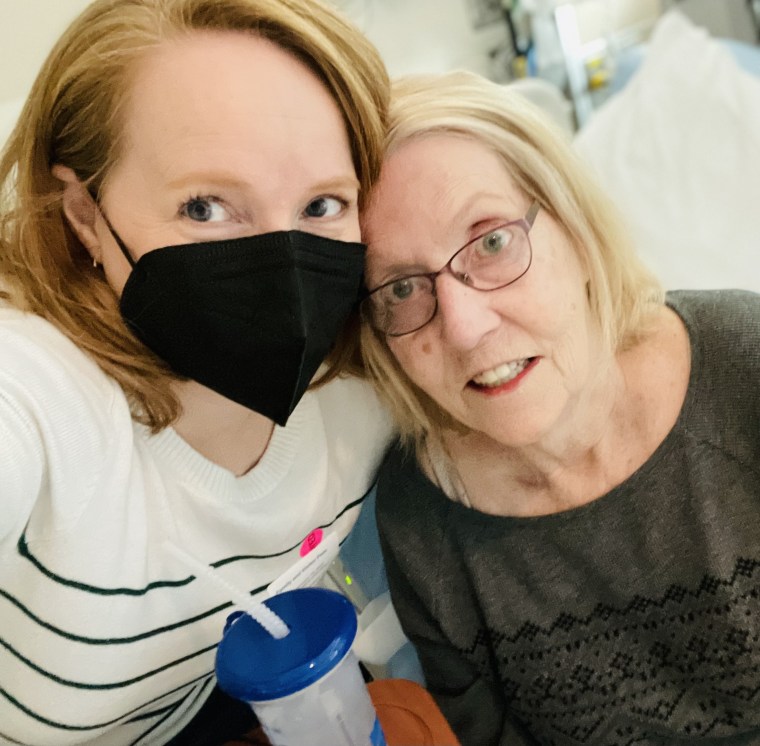
A family friend recently told me, “you know, taking care of your parents teaches you a lot about yourself.” That person was right. But I haven’t liked what I’ve learned.
For example, I’ve learned that I am just not good at being alone with what little alone time I have.In all of the chaos of managing two very needy households – all while working full-time in a leadership role – I’ve had very little alone time. I’ve done an OK job at self-care, getting outside for daily exercise and hitting the sack early most nights. But truly being alone? In the quiet? All by myself? While awake? Nope. Not so much.
And as it turns out, spending time alone is an essential component to our mental health and sense of self. According to Washington, D.C.-based executive coach and Dr. Kiban Turner, “…people who spend time alone are happier, report lower levels of stress, and have lower rates of depression.”
I realized that I had never really spent much time alone. I’ve never lived alone, going from my childhood home with parents and brother, to sharing a room with college roommates, to living with my then-boyfriend, now-husband. I skipped right over the young-single-gal-in-the-city stage. And those rare times when I do have the house to myself? I automatically crave the engagement of my friends. And if they’re not available, I go right to social media on my phone.
Take for example, Christmas Day. After waking up my grumpy teenagers at the unthinkable hour of 11 a.m., making them a big breakfast and giving gifts, the boys took off in my 2011 Mini Cooper convertible to show off their new threads on the preternaturally warm 68 degree day in Virginia. My husband, a cyclist, went out for a “short ride.”
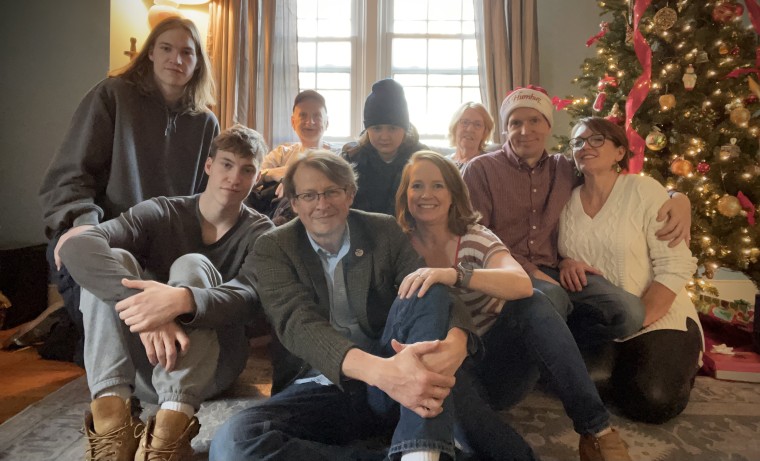
I should have been happy with the quiet. I had taken the easy route that day with a pre-cooked honey-baked ham dinner. The house was clean. I had no work. I literally had nothing to do and nowhere to be.
I dragged my Sonos Roam outside, played “Folksy Christmas” and tried to enjoy the solitude. But I was miserable, unable to enjoy my own company. That’s when I texted my friend from middle school, Chad Hutchinson, who I knew would be spending Christmas alone, and not terribly unhappy about it.
For as long as I’ve known him, Chad has charted his own path. A single man in his 40s with no kids or pets, he travels, he sees live music with the fervor of someone half his age. And sometimes he does nothing. And he is good with it. With a string of side hustles from census worker to substitute teaching and even appearing as an extra in “Friday Night Lights,” Chad has largely avoided the 9-to-5 trappings that most would consider hallmarks of adult success, and has even embarked on a poetry career.
With a shared love of live music, I’ve run into Chad at shows in our very musical hometown of Charlottesville, Virginia and see him every summer at our favorite musical festival. He’s what some might call a bon vivant, a man about town. A guy who lets the good times roll.
Which is why it struck me that when I reached out to him on one of my many nights back in my hometown taking care of my parents, he declined and said “I’m a bit of a hermit these days.” I finally cajoled him out to the beer hall owned by our mutual friend since middle school. “I’ve been spending a lot of time alone and I LOVE IT,” he told me.
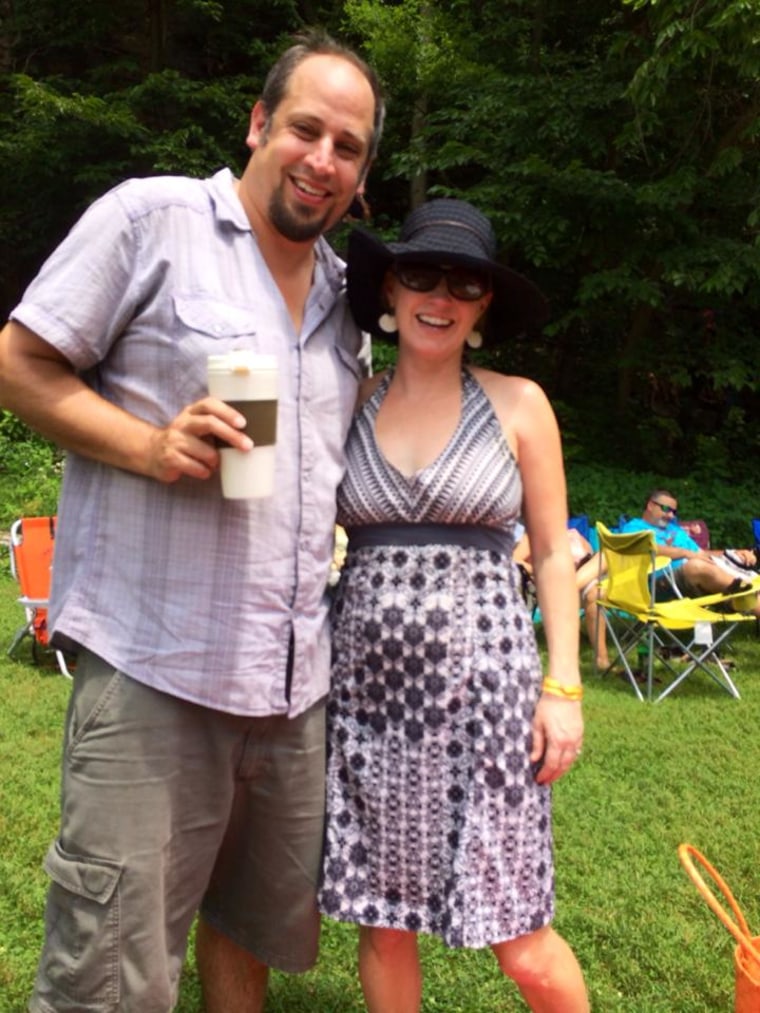
So, on that lonely Christmas afternoon, I thought about Chad. I texted him. I asked what he loved about being alone, and he said “the solitude.” When I admitted that I’d need training wheels to work up to this, that it’s been a minute (or maybe ever) since I have truly been alone, Chad gave me a prescription for solitude. It goes like this:
1. Close your eyes and be still.
2. Ask: what would make me feel the best right now?
3. Do it.
4. Give yourself permission to lay on a blanket and stare at the clouds
with headphones loud without answering to anyone.
5. Turn "do not disturb" on your phone.
Right then and there, I tried it. And it was amazing. I grabbed a sweatshirt, an old blanket, and tossed it in my front yard. I popped in my headphones, threw on some relaxing music, and swiped up for the Do Not Disturb setting on my iPhone.
I gave myself permission to do nothing on that blanket, lying in my yard. I told my family I had an invisible “do not disturb” on me. Without the “rules” of meditation, I was free to let my mind wander, listen to music, or nothing at all.
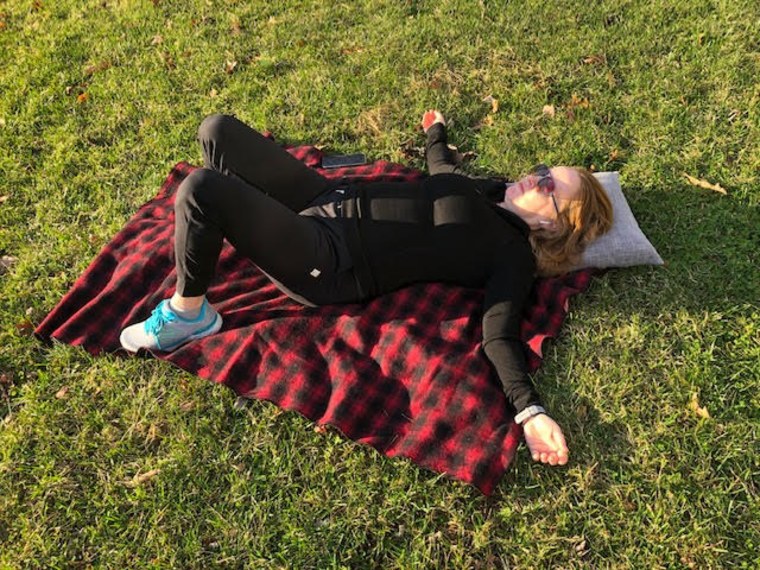
I began this journey over the holidays, aiming for 20 minutes of solitude a day. It’s been harder of late to find the time while double household caregiving, or enough layers to sit outside. But even sitting in my window seat and staring at the trees and birds for 10 minutes has rebuilt the “time alone” muscle I didn’t know had atrophied.
It turns out Chad is on to something.
“In today’s world, where we have access to millions of people, articles, and images at the touch of a button, we have grown away from spending time alone,” said Dr. Turner. “We turn on the radio in the car, listen to audiobooks as we fold laundry, and stream shows in our downtime.”
Dr. Turner offered the following suggestions on other ways to add alone time into your routine if a two-day silent retreat doesn’t quite fit into your schedule:
-Try to spend 10 minutes each day without a screen or another person to distract you
-Leave the radio off while driving, enjoy the silence
-Take a short walk without your air pods
-Sit outside in a park or your yard and just be
In this marathon that is sandwich generation caregiving, I have found myself with a strange amount of alone time. I’m in the car a lot. And when I am with my parents, they spend a lot of time in the hospital at home or in bed. I am away from my husband, our boys, my girlfriends, and totally out of my normal social routine.
When I am back home, there’s a lot of storming off from the teenagers, unhappy with the boundaries I’ve held that are not to their liking. There aren’t a lot of peaceful family dinners or lounge time on the couches watching movies. My husband, running the Folsom Frat House solo for the last few months, takes off on his bike, his own method for claiming peaceful time alone.
This prescription for solitude? It helped me reframe this very trying time as a “bonus season” with my parents. It’s allowing the boys some time to figure things out on their own. It has given me permission to claim little bits of me-first time. What I’m slowly learning is I actually like spending time with me. It is getting me through a very dark period, and I am all the better for it.
Jennifer Folsom is vice president of growth at ICF Next. She lives in Alexandria, Virginia, with her husband Ben and has three teenage sons. Her practical guide to modern working motherhood," The Ringmaster," is out now.
